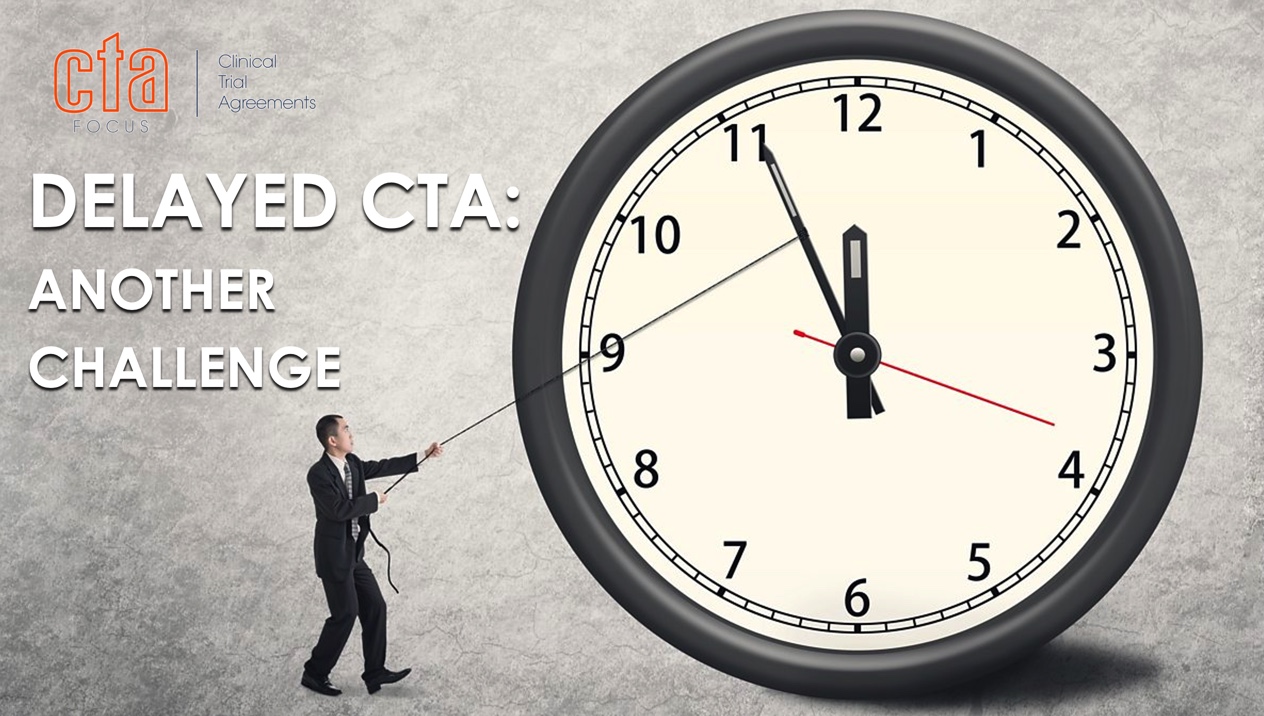
DELAYED CTA: ANOTHER CHALLENGE
Prolonged Clinical Trial Agreement (CTA) negotiation and late CTA execution is, unfortunately, quite common for the clinical research. That is why there is a specific focus on the CTA negotiation/execution process, as delayed CTA often means delayed clinical trial site initiation and start of patient recruitment. Not to mention, delayed CTA may cause site payment issues.
Why is it so problematic to get the fully executed CTA on time? Let’s review some reasons:
⁃ Delayed preparation for negotiations.
Timely availability of final CTA and budget templates is essential. In practice, the preparatory stage timelines vary depending on the complexity of the budgets: whether per-visit or per-procedure budget is planned for the study; whether there are multiple treatment arms; whether additional site’s facilities are to be involved (laboratory, pharmacy, radiology, pathology, etc.); and other factors mirroring the ‘complexity’ of the study protocol.
Extensive CTA wording proposed by the study sponsor may result in longer finalization of country-specific CTA template, too. For instance, US-based sponsors offering their CTA template to be used in an Eastern European country will probably face a lot of pushbacks from the local specialist asking to remove US-specific legislative references or even whole sections from the template as these are not applicable to the country. Here, we would like to thank those countries and sites that have their own mandatory CTA and / or budget templates.
⁃ Slow sites.
Another widespread reason of delays. CTA/budget review process at site is always site-specific: it can be quick if only PI’s review is required, and it can last for months in case of multi-level review procedure involving different departments of the site. Among other reasons for a site to be ‘slow’ it is worth to mention high workload or long absence of the site’s reviewers, prioritisation of other studies, low motivation of the site. The local contracts negotiator can be consulted about previous experience with the site.
⁃ Insufficient (unrealistic) study start-up planning.
This happens not because of unprofessional approach of the study team to the planning, but simply because of the nature of a trial itself. Clinical trials consist of multiple tasks for multiple professionals and teams, and if some task is delayed it incrementally impacts other tasks and processes, and CTA/budget component is not an exception here. Planning is great, but not always everything goes according to the plan – and this is normal.
We already spoke about proper planning here.
Thus, delays happen, and it is kind of normal, but our task is to foresee and prevent the delays to the extent possible. CTA Focus team has a robust experience with many sites on all continents, so we will be happy to support our clients in delay-free negotiations.
